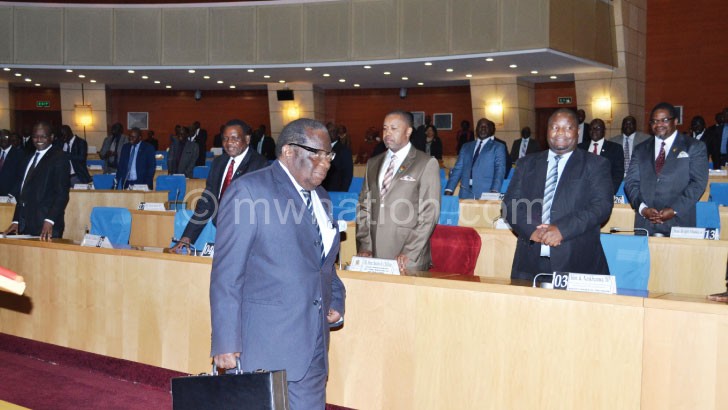Govt to contain bloated wage bill—Treasury
Treasury has said it is upbeat on maintaining the wage bill within the approved levels by the end of the 2016/17 fiscal year despite a 7.4 percent over expenditure within the first half.
In the 2016/17 Mid-Year Budget Review Statement, Minister of Finance, Economic Planning and Development Goodall Gondwe told Parliament last week that wages and salaries and interest payments were overspent by 7.4 percent and 4.6 percent, respectively.

“The excess expenditure on wages and salary was due to payment of arrears to primary school teachers who were recruited at the tail end of 2015/16 financial y ear,” he said.
A total of K222.7 billion was allocated for the wage bill of the current financial year, which was 23.3 percent of the then K1. 149.2 trillion total expenditure and net lending but now reduced by K20 billion to K1.129 trillion budget for the year.
Government is faced with the challenge of maintaining the wage bill at seven percent of the nominal gross domestic product (GDP)—the total measure of economic activity—as agreed with the International Monetary Fund (IMF) under the Extended Credit Facility (ECF) while allowing for recruitment of teachers, doctors, nurses and security officers at the same time offering a modest salary to low-paid civil servants.
But in an interview on Tuesday, Treasury spokesperson Alfred Kutengule said they expect the total wage bill expenditure by the end of the year to be within the approved figures.
“This is just at mid-year and it is due to one-off payment of salary arrears in some ministries, departments and agencies especially education,” he said.
In the budget, Gondwe said the annual fiscal plan has been revised on the basis of the budgetary performance of the first half for the financial year, and the needed fiscal adjustments in response to the loss in budget support.
He said the downward revision in total expenditure is due to an expected decrease in disbursements of foreign financed projects.
“This reduction in overall expenditure would have been larger were it not for the increase in interest payments. The mushrooming interest payments on domestic debt reflect the conversion of zero coupon promissory notes as they mature, and this will result in a surge of interest payments for the next three years,” he said.
In June 2014, government had accumulated a huge amount of arrears that amounted to K155 billion.





